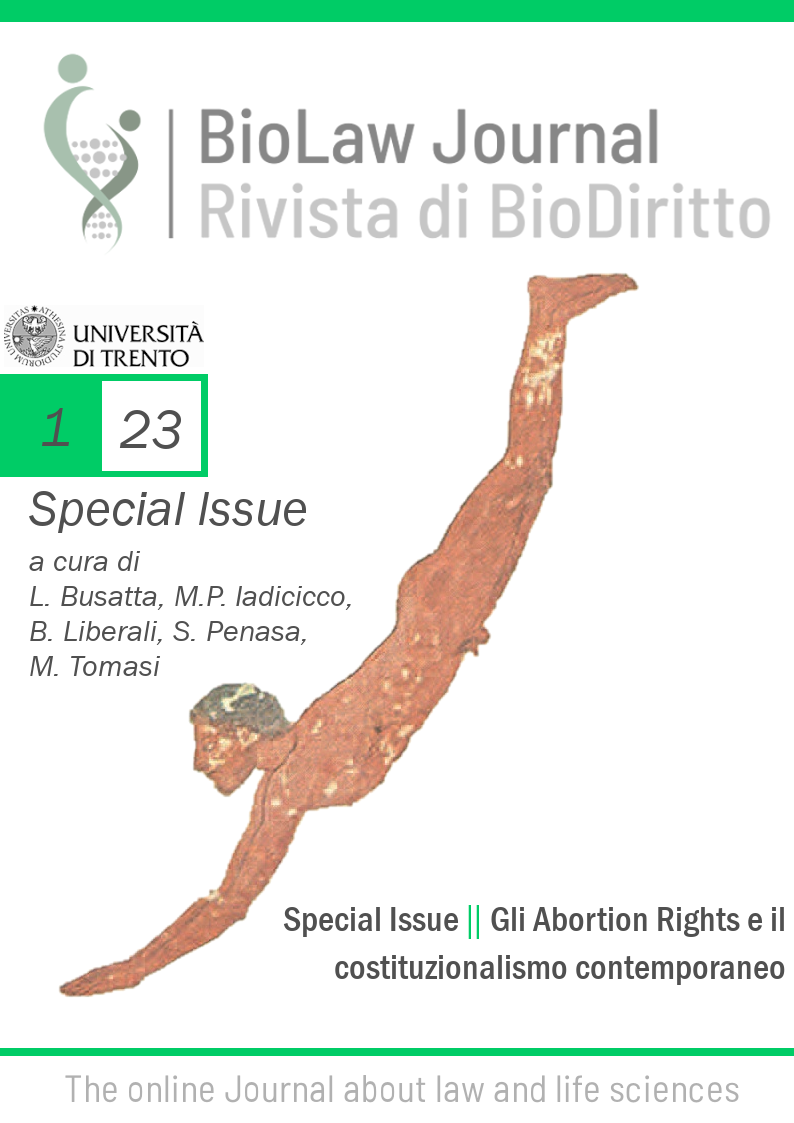Free indeed? The effectiveness of Law No. 194/1978 on trial: a case study in the Verona area
DOI:
https://doi.org/10.15168/2284-4503-2568Keywords:
Abortion, self-determination, civil rights, conscientious objection, health-care systemAbstract
Starting with a reconstruction of the socio-political context that led to the enactment of the Law n.194 in 1978 and outlining the international landscape in which it fits today, the research presents some considerations on its action to guarantee women’s health and reproductive rights. Indeed, there is not only conscientious objection that influences its effectiveness: even more so in pandemic and post-pandemic times, limitations on access to IVG have to do with a much broader dimension of systematic and structural deficiencies. In addition to the analysis of the processes that are maintaining, when not exacerbating, the dyscrasia between formal and substantive right to abortion, it is crucial to observe what this entails in the concrete experience of a woman who wants to access the service, and for this reason the research roots the analysis in the territory by focusing in the last part on a case study in the Verona area using a qualitative ethnographic methodology (shadowing).
Downloads
Published
How to Cite
Issue
Section
License

This work is licensed under a Creative Commons Attribution-NonCommercial-NoDerivatives 4.0 International License.





